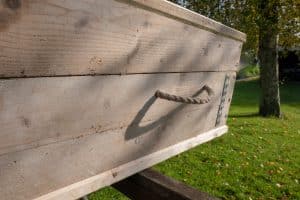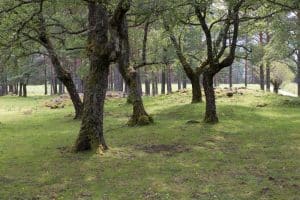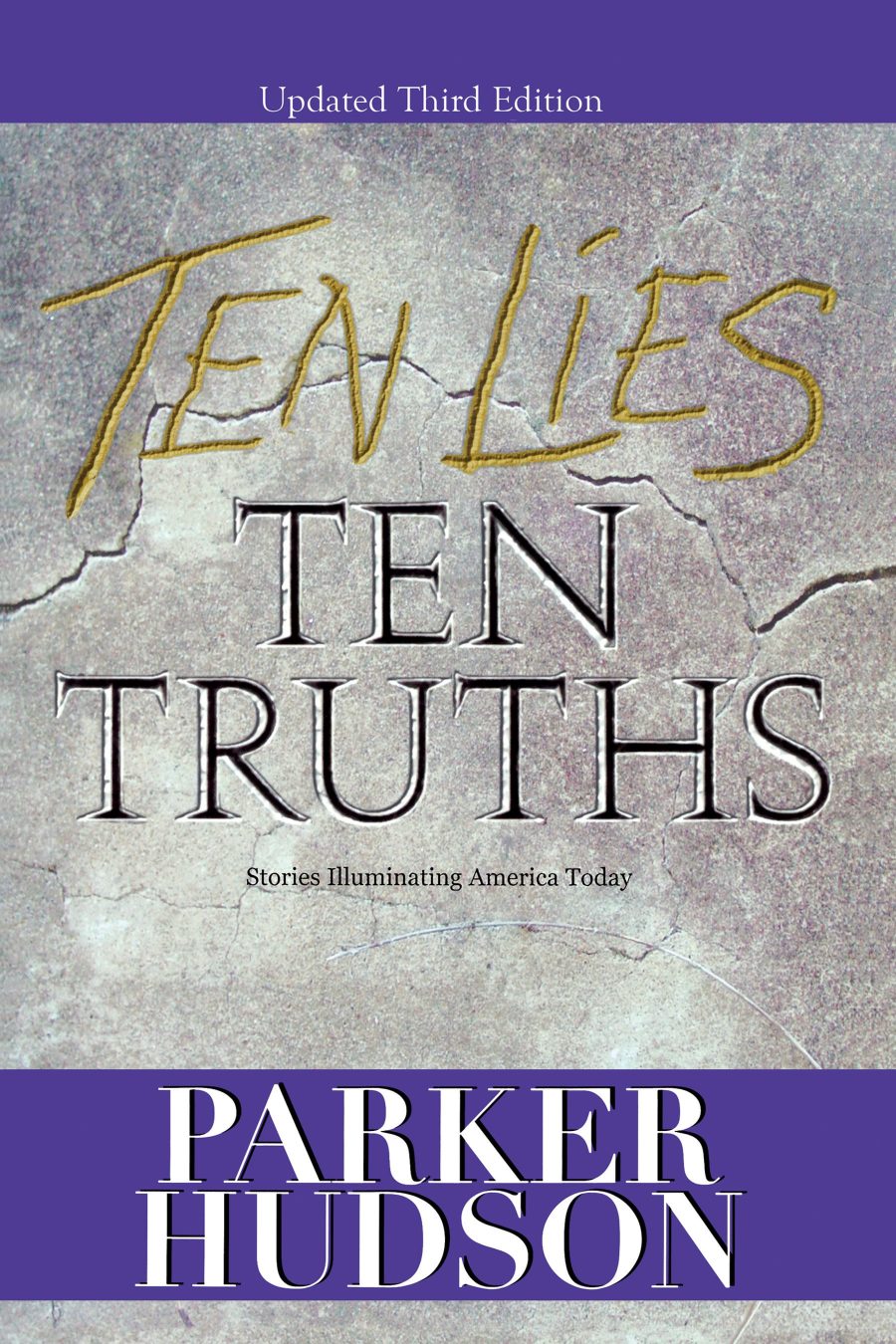This month’s post is on a probably unexpected but in my view important subject: The many advantages of Natural Burial.
I owe a debt to Colonel Jim Harper of Men’s Fraternity for planting the seeds on this subject many years ago. And I am excited that a Christian conference center in western North Carolina which we’ve attended for decades is about to open a large, wooded area for this purpose—there is already a long waiting list.
And this is the rare subject today on which traditional Christians, progressive Christians, secularists, spiritualists and atheists can all agree and work together for a common, shared purpose. How many more of those can you name?
Natural (“Green”) Burial returns the body to the earth in a way that allows for natural decomposition without embalming fluids, metal caskets, or concrete vaults. This contrasts sharply with traditional burials, which often use resource-intensive materials like metal coffins and chemical preservatives, and with cremation, which relies on high-energy processes that release emissions.
First, consider the purely secular advantages: Natural burial stands out for its minimal footprint on the planet, making it a compelling choice for those prioritizing sustainability and efficiency. Here are seven key secular advantages, supported by environmental and industry analyses:
- Reduced Environmental Pollution and Resource Conservation: Unlike traditional burials, which introduce toxic embalming chemicals (like formaldehyde) into the soil and groundwater, green burial uses only biodegradable materials, such as simple shrouds or wooden caskets. This avoids leaching harmful substances and conserves natural resources by eliminating the need for non-degradable metals, plastics, and concrete vaults.
 Lower Carbon Emissions and Energy Use: Cremation requires intense energy—equivalent to burning fossil fuels for hours—emitting significant CO2 and contributing to climate change. Green burial, by contrast, produces virtually no emissions during the process and can reduce carbon output by up to 1.4 tons per burial compared to cremation. Traditional burials also have a high carbon footprint due to manufacturing and transporting metal caskets and vaults, making green options far more energy-efficient overall.
Lower Carbon Emissions and Energy Use: Cremation requires intense energy—equivalent to burning fossil fuels for hours—emitting significant CO2 and contributing to climate change. Green burial, by contrast, produces virtually no emissions during the process and can reduce carbon output by up to 1.4 tons per burial compared to cremation. Traditional burials also have a high carbon footprint due to manufacturing and transporting metal caskets and vaults, making green options far more energy-efficient overall.
- Cost-Effectiveness for Families: Traditional burials can cost $7,000–$12,000 or more, including caskets, embalming, and cemetery fees, while cremation averages $6,000–$8,000 with urns and services. Green burials are often much cheaper—typically $2,000–$6,000—since they skip expensive add-ons like vaults and chemicals, allowing families to allocate funds toward memorials or charitable causes instead.
- Better Land Use and Conservation: Green burial sites are usually integrated into natural landscapes, such as forests or meadows, promoting land preservation rather than the manicured lawns of conventional cemeteries that require pesticides and water. There are typically no vertical gravestones—only markers flush with the ground, so from a distance a natural burial site looks like a garden, meadow or forest.
- Support for Biodiversity and Ecosystem Health: By allowing natural decomposition, green burials enrich the soil with nutrients, fostering plant growth and supporting local wildlife. This contrasts with traditional burials, which can disrupt ecosystems through chemical runoff, and cremation, which offers no ecological return.
- Meaningful Family Involvement: Green burial often involves hands-on elements, like hand-digging graves or using locally sourced materials, creating a more personal and therapeutic process for loved ones. This participatory approach reduces reliance on industrialized funeral services, fostering closure without the detachment common in cremation or vaulted burials.
- Alignment with Cyclical Life Processes: For those viewing life through a secular, naturalistic lens, green burial honors the cycle of decay and
renewal, allowing the body to contribute positively to the earth rather than being preserved artificially or reduced to ash. It’s a fulfilling alternative that emphasizes sustainability over waste.
Now consider the many Christian, Faith-Based Principles of Natural Burial: Honoring God and His Creation, and symbolizing the Resurrection.
For Christians, natural burial resonates deeply with biblical teachings, offering a way to integrate faith into end-of-life decisions. It echoes ancient practices while addressing modern stewardship calls. Here are five faith-centered advantages:
- Symbolism of Christ’s Burial and Resurrection: Burial has long been the only traditional Christian method, symbolizing the natural body’s rest in anticipation of the resurrected body, just as Christ was buried and rose bodily. Despite this long and important tradition, as local churches have run out of land and burial costs have soared, cremation has often become the easier/cheaper alternative. While the ultimate destination for the soul is of course the same for believers, the symbolism is not. Natural burial proclaims to everyone the Christian witness of our faith in eternal life in a new, resurrected body, leaving behind the old, temporary body to be returned to the earth from which it was formed (Genesis 3:19). And
because family members of all ages can be included in the process, it tends to have a profound and lasting spiritual impact on every participant.
- Honoring the Sacredness of the Human Body: As temples of the Holy Spirit (1 Corinthians 6:19–20), our bodies deserve dignified treatment. Natural burial respects this by forgoing invasive embalming.
- Stewardship of God’s Creation: Scripture calls believers to care for the earth (Genesis 2:15), and green burial minimizes harm by avoiding chemicals and emissions that pollute God’s handiwork. It is less damaging than cremation’s energy use or traditional burial’s resource waste, allowing Christians to live out their faith through environmental responsibility.
- Promotes Spiritual Reflection and Community: The simplicity of green burial encourages prayerful, reflective environments—peaceful forests or meadows that invite contemplation of God’s peace (Psalm 23). It fosters family cohesion through shared rituals, strengthening bonds in a scattered world and turning mourning into a communal act of faith.
- Alignment with Biblical and Historical Practices: Early Christians practiced simple burials without modern interventions, mirroring green methods. This return to roots offers spiritual fulfillment, renewing the landscape of hearts and souls, while honoring God’s cyclical design in nature.
These advantages position green burial as a ministry of profound symbolism and care, blending foundational theology with practical action.
Green burial isn’t just an alternative—it is a thoughtful statement that benefits the planet, saves money, and deepens spiritual connections. Whether driven by secular concerns like sustainability or Christian convictions about resurrection for believers, it offers a dignified, impactful way to say goodbye.
If you’re considering options, please explore local green cemeteries or resources like the Green Burial Council. GREEN BURIAL COUNCIL – Welcome.
What are your thoughts on Natural Burial? Please share in the Comments.
And here is a further quick blog post read: “You and I Will Die“. We will, so it makes perfect sense to get ready.

 renewal, allowing the body to contribute positively to the earth rather than being preserved artificially or reduced to ash. It’s a fulfilling alternative that emphasizes sustainability over waste.
renewal, allowing the body to contribute positively to the earth rather than being preserved artificially or reduced to ash. It’s a fulfilling alternative that emphasizes sustainability over waste. because family members of all ages can be included in the process, it tends to have a profound and lasting spiritual impact on every participant.
because family members of all ages can be included in the process, it tends to have a profound and lasting spiritual impact on every participant.
Comments